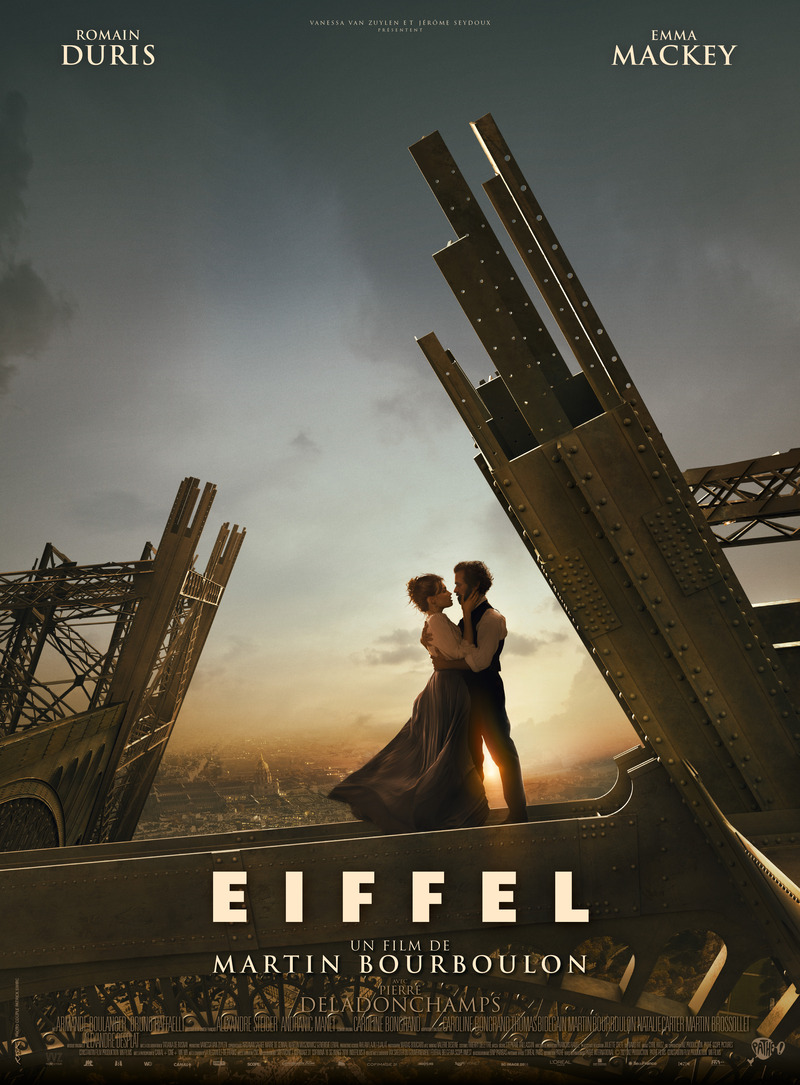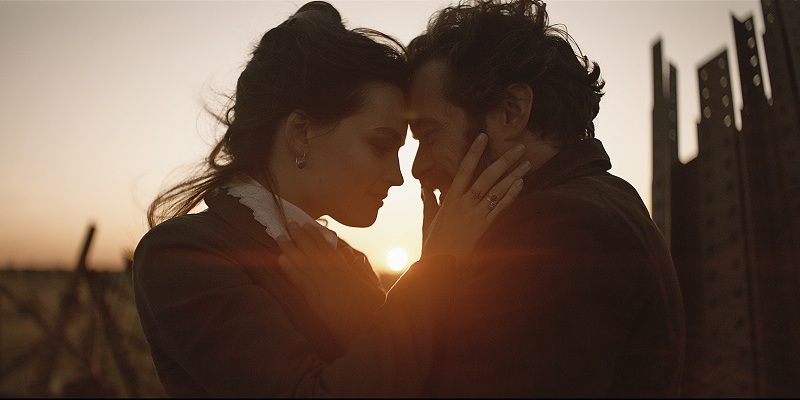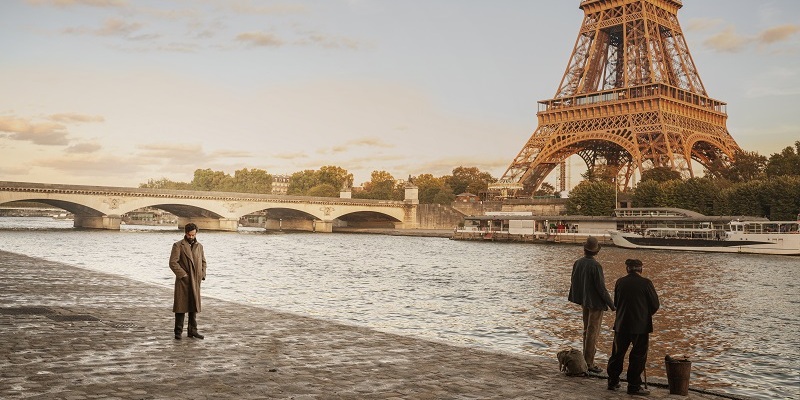
Review by
Eric Hillis
Directed by: Martin Bourboulon
Starring: Romain Duris, Emma Mackey, Pierre Deladonchamps, Armande Boulanger, Bruno Raffaelli

Francis Lee's
Ammonite
received much criticism for taking an important historical figure, the
19th century English paleontologist Mary Anning, and brushing her
achievements off the table to make way for a steamy lesbian romance.
There's no historical evidence of Anning ever being romantically
involved with a woman, or a man for that matter, but Lee decided her
professional achievements weren't interesting enough. With
Eiffel, director Martin Bourboulon and writer
Caroline Bongrand similarly relegate the achievements of the
engineer who gave his name to arguably Europe's most famous structure to
a subplot in a fictional romance.

Played here in flattering fashion by the handsome Romain Duris,
Gustave Eiffel is portrayed as a high-spirited, dashingly romantic
figure. Having received acclaim for designing the innards of the Statue
of Liberty, Eiffel sets his sights on building a structure in the heart
of Paris that, as one politician puts it, will serve as "France's
revenge on history." Getting permission and funding requires a lot of
hobnobbing and ass-kissing of the sort of wealthy capitalists this man
of the people version of Eiffel detests. At one such dinner he is
shocked by the arrival of Adrienne (Emma Mackey), the woman he
was set to marry 20 years earlier before she ran away. Adrienne is now
married to another man but seems keen to rekindle her relationship with
Gustave, who is wary of having his heart broken once again.
As a closing caption points out, the Eiffel Tower is built in the shape
of the letter "A", so the filmmakers have decided it must surely have
been inspired by a woman. Gustave Eiffel was actually married for 15
years to Marie Gaudelet, who died at the tender age of 32. If the movie
had to focus on Eiffel's love life, why not centre it on the romance we
know he was actually involved in? I guess because to do so would make
for a "boring" story, unlike the melodramatic tale of star-crossed
lovers we get here.

Much of the film consists of flashbacks to Gustave and Adrienne's
courtship, which even rips off Vertigo at one point by
having Adrienne jump into the Seine in the hopes that Gustave will
rescue her and thus prove his love. She earlier watched him similarly
rescue a drowning worker who fell from a bridge he was constructing, so
I'm not sure if saving Adrienne would really prove any romantic
interest. Of course, Adrienne is a hotty, and so Gustave begins pursuing
her from the moment he sets his eyes on her. Duris's Eiffel is also a
bit of alright, and so the feeling is mutual. There's an unintentional
comedy to how the pair eyeball each other over dinner, as though they're
about to brush aside the plates of asparagus and get down to it among
the silverware.
Mackey follows the likes of fellow English actresses Jane Birkin,
Charlotte Rampling, Jacqueline Bissett, Kristen Scott Thomas, Stacy
Martin and Gemma Arterton in trying her hand in French cinema, and to my
uncultured ears she pulls off the part with aplomb. It's not exactly the
most complex of roles, as she's largely required to simply look pretty
in a stretched corset and make googly eyes at the titular
engineer.

If you're expecting a history lesson, you'll be sorely disappointed. We
learn practically nothing about Eiffel's construction, which is mostly
glimpsed as a few girders tended to by the sort of noble workers you
might have found in a Soviet propaganda film. The movie portrays Eiffel
as a pseudo socialist who battles with the rich and wants his creation
to be "for all of France," but this is contradicted by a scene in which
he pleads with his workers to do two months' work in two weeks, leaping
about the scaffolding like a chimp in the trees to prove they aren't in
any danger (to its credit, not a single worker was killed during the
tower's construction). Just who was the real Gustave Eiffel? You'll have
to look elsewhere to find the answer to that question.

